Dear Zazie, Today’s Lovers’ Chronicle from Mac Tag to his muse. Anyone knockin’ at your chamber? Rhett.
The Lovers’ Chronicle
Dear Muse,
we can and we should
oh, which do you prefer
to venture forth or go
“The less dramatic way”
ha i agree
but, i have no song for this
“Me either”
it is a place where our minds
are free to roam, where words
are arranged, not randomly,
not in dreary dead habit
but purposely beyond
© copyright 2023 mac tag/cowboycoleridge all rights reserved
we can and we should
venture forth or go,
which do you prefer
where the mind is free to roam
where fine words arranged
in whichever way we please
lead not in dreary dead habit
nor from the depth of truth
or perfection, the tireless
strivin’ stretches of whatever
© copyright 2022.2023 mac tag/cowboycoleridge all rights reserved
© copyright 2021 mac tag/cowboy coleridge all rights reserved
© copyright 2020 mac tag/cowboy coleridge all rights reserved
provocation towards
lookin’ for somethin’ other
transformin’ encounters
with verse, art, music
you
© copyright 2019 mac tag/cowboy coleridge all rights reserved
what dreams
are made of
strive ever so
to catch the light
to write verse
tryin’ to come close
to what you achieve
simply by bein’
the way you are
for that is what i seek
to exceed the reach
beyond ordinary
© copyright 2018 mac tag/cowboy coleridge all rights reserved
you come knockin’
at my chamber
in my dreams
every night
if only it were more
than just in my dreams
© copyright 2016 mac tag all rights reserved
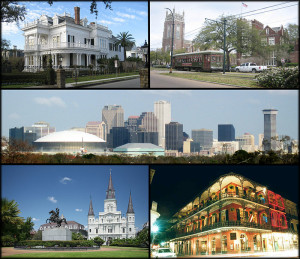
It was on this day in 1718, that the city of New Orleans was founded by Jean-Baptiste Le Moyne, Sieur de Bienville. One of our favorite cities. Rhett has loved some beautiful women there. As you know, New Orleans features prominently in my verse. Would it were that we were in New Orleans when midnight comes.
| Olympe de Gouges | |
|---|---|

Late-18th century portrait of Gouges by Alexander Kucharsky
|
|
Today is the birthday of Olympe de Gouges (Marie Gouze; Montauban, Guyenne-and-Gascony, France 7 May 1748 – 3 November 1793 Place de la Révolution, Paris); playwright and political activist whose feminist and abolitionist writings reached a large audience.
She began her career as a playwright in the early 1780s. As political tension rose in France, de Gouges became increasingly politically engaged. She became an advocate against the slave trade in the French colonies in 1788. At the same time, she began writing political pamphlets. Perhaps best known as an early feminist who demanded that French women be given the same rights as French men. In her Déclaration des droits de la femme et de la citoyenne (Declaration of the Rights of Woman and the Female Citizen (1791)), she challenged the practice of male authority and the notion of male-female inequality. She was executed by guillotine during the Reign of Terror for attacking the regime of the Revolutionary government and for her association with the Girondists.
In 1765 aged 16 she was married against her will to Louis Aubry, a caterer. De Gouges said in a semi-autobiographical novel (Mémoire de Madame de Valmont contre la famille de Flaucourt), “I was married to a man I did not love and who was neither rich nor well-born. I was sacrificed for no reason that could make up for the repugnance I felt for this man.” Her husband died a year later, and in 1770 she moved to Paris with her son to live with her sister. She never married again, calling the institution of marriage “the tomb of trust and love”.
In Paris she started a relationship with the wealthy Jacques Biétrix de Rozières, but refused his marriage proposal. She remained close to Rozières throughout the French Revolution. With the support of Rozières she established a theatre company. De Gouges attended the artistic and philosophical salons of Paris, where she met many writers, including La Harpe, Mercier, and Chamfort, as well as future politicians such as Brissot and Condorcet. She usually was invited to the salons of Madame de Montesson and the Comtesse de Beauharnais, who also were playwrights.
In 1788 she published Réflexions sur les hommes négres, which demanded compassion for the plight of slaves in the French colonies. For de Gouges there was a direct link between the autocratic monarchy in France and the institution of slavery, she argued that “Men everywhere are equal… Kings who are just do not want slaves; they know that they have submissive subjects.” She came to the public’s attention with the play l’Esclavage des Noirs, which was staged at the famous Comédie-Française in 1785. Her stance against the slavery in the French colonies made her the target of threats. De Gouges was also attacked by those who thought that a woman’s proper place was not in the theatre. The influential Abraham-Joseph Bénard remarked “Mme de Gouges is one of those women to whom one feels like giving razor blades as a present, who through their pretensions lose the charming qualities of their sex… Every woman author is in a false position, regardless of her talent”. Gouges was defiant, she wrote “I’m determined to be a success, and I’l do it in spite of my enemies.” The slave trade lobby had mounted a press campaign against her play and she eventually took legal action, forcing Comédie-Française to stage l’Esclavage des Noirs. But the play closed after three performances, the lobby had paid hecklers to sabotage the performances.
A passionate advocate of human rights, de Gouges greeted the outbreak of the Revolution with hope and joy, but soon became disenchanted when égalité (equal rights) was not extended to women. In 1791 de Gouges became part of the Society of the Friends of Truth, also called the “Social Club,” an association with the goal of equal political and legal rights for women. Members sometimes gathered at the home of the well-known women’s rights advocate, Sophie de Condorcet. Here de Gouges expressed, for the first time, her famous statement:
“Si la femme a le droit de monter sur l’échafaud, elle doit avoir également celui de monter à la tribune.”
(A woman has the right to mount the scaffold. She must possess equally the right to mount the speaker’s platform. {The Declaration of the Rights of Women})
1791, in response to the Declaration of the Rights of Man and of the Citizen, she wrote the Déclaration des droits de la Femme et de la Citoyenne (“Declaration of the Rights of Woman and the Female Citizen“). This was followed by her Contrat Social (“Social Contract,” named after a famous work of Jean-Jacques Rousseau), proposing marriage based upon gender equality.
As the Revolution progressed, she became more and more vehement in her writings. On 2 June 1793, the Jacobins arrested the Girondins, imprisoned them, and sent them to the guillotine in October. Finally, her poster Les trois urnes, ou le salut de la Patrie, par un voyageur aérien (“The Three Urns, or the Salvation of the Fatherland, by an Aerial Traveller“) of 1793, led to her arrest. That piece demanded a plebiscite for a choice among three potential forms of government: the first, unitary republic, the second, a federalist government, or the third, a constitutional monarchy.
After she was arrested, the commissioners searched her house for evidence. When they could not find any in her home, she voluntarily led them to the storehouse where she kept her papers. It was there that the commissioners found an unfinished play titled La France Sauvée ou le Tyran Détroné (“France Preserved, or The Tyrant Dethroned“). In the first act (only the first act and a half remain), Marie-Antoinette is planning defence strategies to retain the crumbling monarchy and is confronted by revolutionary forces, including Gouges herself. The first act ends with Gouges reproving the queen for having seditious intentions and lecturing her about how she should lead her people. Both Gouges and her prosecutor used this play as evidence in her trial. The prosecutor claimed that Gouges ‘ depictions of the queen threatened to stir up sympathy and support for the Royalists, whereas Gouges stated that the play showed that she had always been a supporter of the Revolution.
She spent three months in jail without an attorney, trying to defend herself. The presiding judge denied Gouges her legal right to a lawyer on the grounds that she was more than capable of representing herself. It seems as though the judge based this argument on Gouges’ tendency to represent herself in her writings. Through her friends, she managed to publish two texts: Olympe de Gouges au tribunal révolutionnaire (“Olympe de Gouges at the Revolutionary tribunal“), in which she related her interrogations; and her last work, Une patriote persécutée (“A [female] patriot persecuted“), in which she condemned the Terror.
The Jacobins sentenced her to death on 3 November 1793, and she was executed the following day for seditious behaviour and attempting to reinstate the monarchy. De Gouges was executed only a month after Condorcet had been proscribed, and just three days after the Girondin leaders had been guillotined. Her body was disposed of in the Madeleine Cemetery. Olympe’s last moments were depicted by an anonymous Parisian who kept a chronicle of events:
“Yesterday, at seven o’clock in the evening, a most extraordinary person called Olympe de Gouges who held the imposing title of woman of letters, was taken to the scaffold, while all of Paris, while admiring her beauty, knew that she didn’t even know her alphabet…. She approached the scaffold with a calm and serene expression on her face, and forced the guillotine’s furies, which had driven her to this place of torture, to admit that such courage and beauty had never been seen before…. That woman… had thrown herself in the Revolution, body and soul. But having quickly perceived how atrocious the system adopted by the Jacobins was, she chose to retrace her steps. She attempted to unmask the villains through the literary productions which she had printed and put up. They never forgave her, and she paid for her carelessness with her head.”
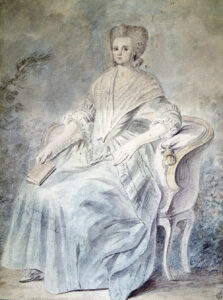
Unknown
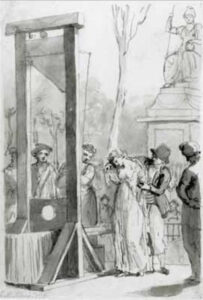
The execution of de Gouges
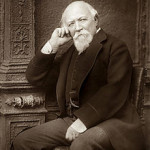 Today is the birthday of Robert Browning (Camberwell 7 May 1812 – 12 December 1889 Venice); poet and playwright whose mastery of the dramatic monologue made him one of the foremost Victorian poets. His poems are known for their irony, characterization, dark humour, social commentary, historical settings, and challenging vocabulary and syntax. In 1846 Browning married the older poet Elizabeth Barrett, who at the time was considerably better known than himself. So started one of history’s most famous literary marriages. They went to live in Italy, a country he called “my university”, and which features frequently in his work.
Today is the birthday of Robert Browning (Camberwell 7 May 1812 – 12 December 1889 Venice); poet and playwright whose mastery of the dramatic monologue made him one of the foremost Victorian poets. His poems are known for their irony, characterization, dark humour, social commentary, historical settings, and challenging vocabulary and syntax. In 1846 Browning married the older poet Elizabeth Barrett, who at the time was considerably better known than himself. So started one of history’s most famous literary marriages. They went to live in Italy, a country he called “my university”, and which features frequently in his work.
Men and Women (1855)
- I do what many dream of, all their lives,
— Dream? strive to do, and agonize to do,
And fail in doing. I could count twenty such
On twice your fingers, and not leave this town,
Who strive — you don’t know how the others strive
To paint a little thing like that you smeared
Carelessly passing with your robes afloat —
Yet do much less, so much less, Someone says,
(I know his name, no matter) — so much less!
Well, less is more, Lucrezia: I am judged.
There burns a truer light of God in them,
In their vexed beating stuffed and stopped-up brain,
Heart, or whate’er else, than goes on to prompt
This low-pulsed forthright craftsman’s hand of mine.- “Andrea del Sarto”, line 70
- Ah, but a man’s reach should exceed his grasp,
Or what’s a heaven for?- “Andrea del Sarto”, line 98.
- Take away love, and our earth is a tomb!
- “Fra Lippo Lippi, line 54.
- If you get simple beauty and naught else,
You get about the best thing God invents.- “Fra Lippo Lippi”, line 217.
For I say this is death and the sole death,—
When a man’s loss comes to him from his gain,
Darkness from light, from knowledge ignorance,
And lack of love from love made manifest.
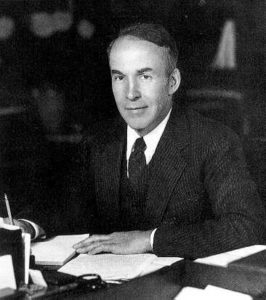 And today is the birthday of Archibald MacLeish (Glencoe, Illinois, May 7, 1892 – April 20, 1982 Boston); poet, writer, and the Librarian of Congress. He is associated with the Modernist school of poetry. He received three Pulitzer Prizes for his work.
And today is the birthday of Archibald MacLeish (Glencoe, Illinois, May 7, 1892 – April 20, 1982 Boston); poet, writer, and the Librarian of Congress. He is associated with the Modernist school of poetry. He received three Pulitzer Prizes for his work.
A poem should be motionless in time~
A poem should be wordless~
A poem should not mean, but be~
- “Ars Poetica”, Collected Poems, 1917-1982 (1985)
So mirrored in thy heart are all desires,
Eternal longings, Youth’s inheritance,
All hopes that token immortality,
All griefs whereto immortal grief aspires.
If you commit yourself to the art of poetry, you commit yourself to the task of learning how to see, using words as elements of sight and their sounds as prisms. And to see means to see something worth all the agony of learning how to see.
Mac Tag
When midnight comes, knock at my chamber-window.
– Shakespeare
A little while and – red eve dies –
Our love shall be of yesterday,
Ah, let us kiss each other’s eyes,
And laugh our love away.
WB Yeats
For it is love that I am seeking for,
But of a beautiful, unheard-of kind
That is not in the world.
WB Yeats
Now, mistress, profit you in what you read?
– Shakespeare
I feel no love, only the Idea of Love.
– Sylvia Plath
To live is the rarest thing in the world. Most people exist, that is all.
– Oscar Wilde
We should meet in another life, we should meet in air, me and you.
– Sylvia Plath
Follow Mac Tag on twitter @cowboycoleridge

No Comments on "The Lovers’ Chronicle 7 May – beyond – birth of Olympe de Gouges – verse by Robert Browning & Archibald MacLeish"